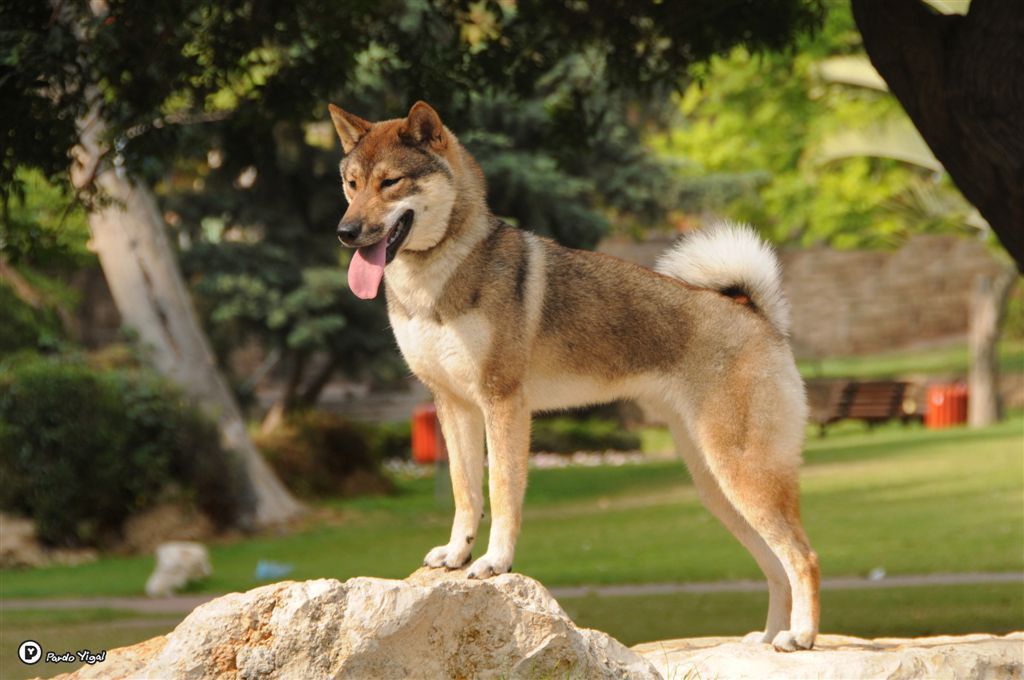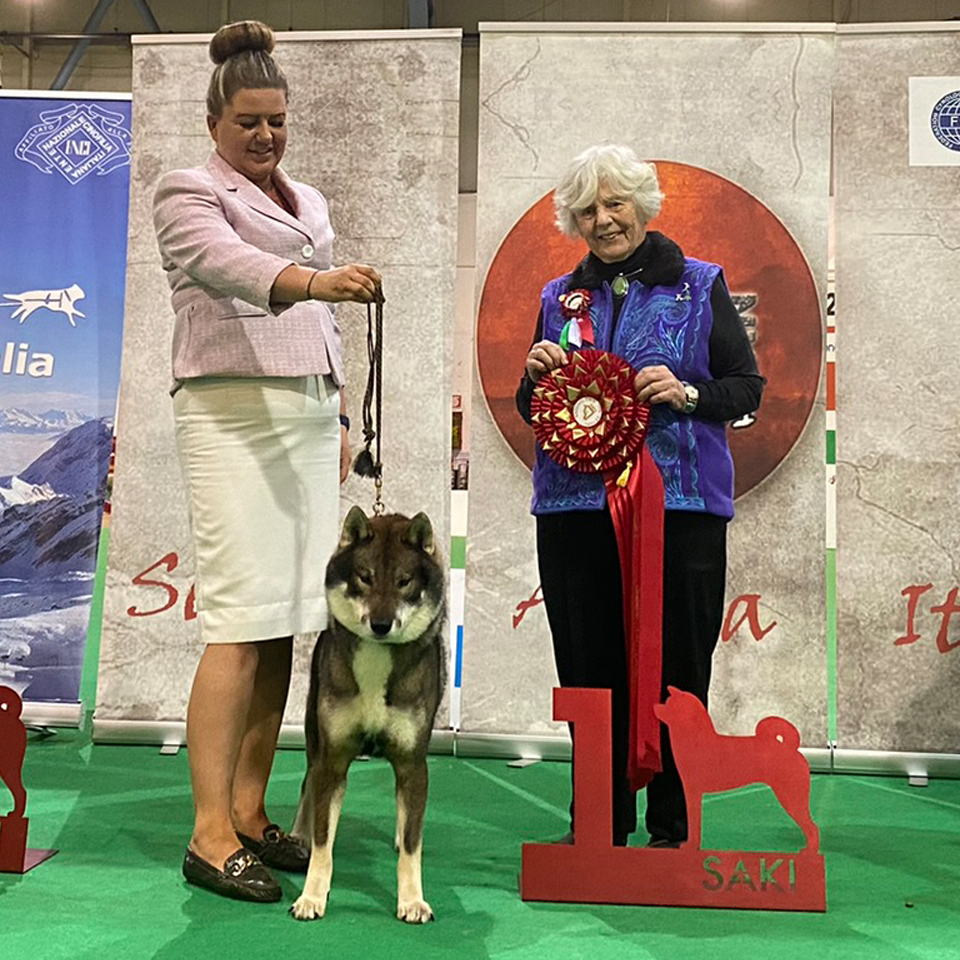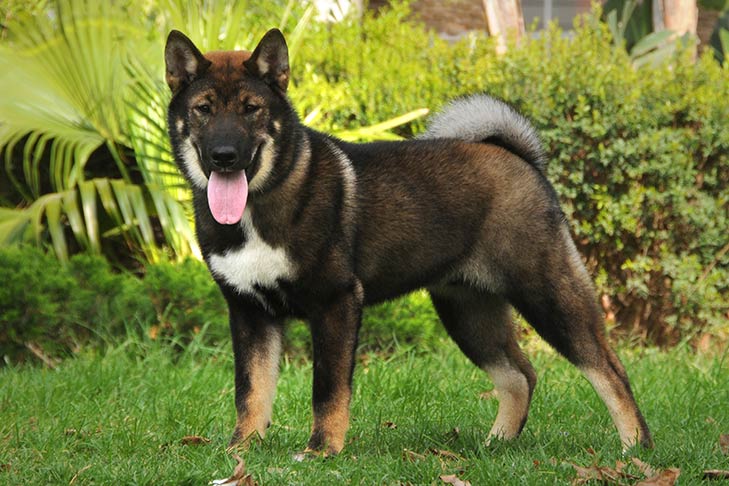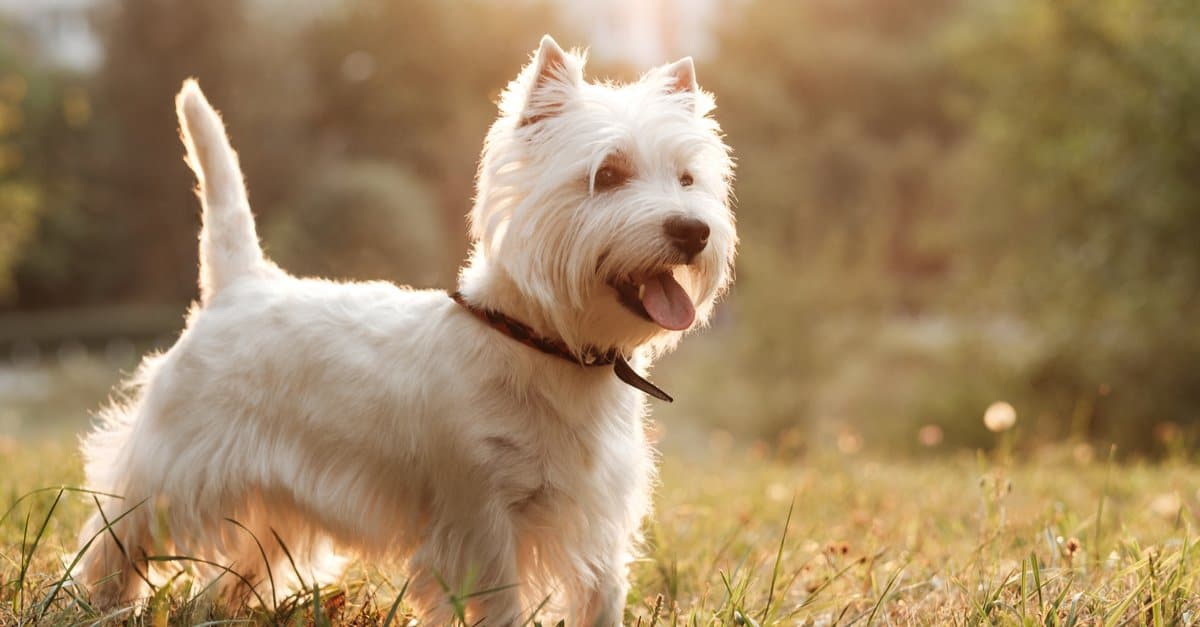Introduction
The Shikoku is a rare breed of dog originating from Japan. This medium-sized breed was originally bred for hunting large game such as wild boar and deer, and is known for their courage, strength, and agility. The Shikoku has a distinctive appearance with their thick coat, erect ears, and curled tail. They are a highly intelligent breed with a strong will, requiring an experienced owner who can provide them with proper training and socialization. While they can be reserved and independent, they are fiercely loyal to their families and make excellent guard dogs.
Shikoku Temperament
Shikoku are known for their loyal and intelligent personalities. They are alert and reserved with strangers, making them good watchdogs. They are also active and energetic dogs that require daily exercise and mental stimulation. Shikoku can be independent and stubborn, so early and consistent training is important. They have a strong prey drive and may not be suitable for homes with small animals. Overall, Shikoku are affectionate and devoted companions for those willing to provide them with the physical and mental stimulation they need.
Aggression

The Shikoku is a strong and independent breed with a natural instinct for hunting and guarding, which can lead to aggressive behavior if not properly trained and socialized. Like any dog, the Shikoku may exhibit aggression if they feel threatened, scared, or protective of their family. They may also display dominant behavior towards other dogs or animals, which can lead to conflicts if not properly managed. It’s important to note that aggressive behavior is not a breed-specific trait and can be seen in any dog.
Health and Lifespan
The reported lifespan range of Shikoku is typically between 10-12 years. However, individual factors such as diet, exercise, and genetics can impact the lifespan of a Shikoku. Regular veterinary check-ups, a healthy diet, and appropriate exercise can help ensure your Shikoku lives a long and healthy life.
Food for Shikoku
Choosing the right food for your Shikoku is essential to maintain their health and well-being. A high-quality dog food with balanced nutrition is important to provide your dog with the necessary energy and nutrients for their active lifestyle. Look for a food that has real meat as the first ingredient, avoiding fillers and by-products. Shikokus are known to have sensitive stomachs, so it’s important to avoid foods that contain artificial preservatives, colors, or flavors. Consider your dog’s age, weight, and activity level when selecting their food.
Training for Shikoku

Training a Shikoku requires patience and consistency. Early socialization is important to help them develop good behavior and become comfortable around other people and animals. Positive reinforcement techniques, such as treats and praise, can be effective when training your dog.They are intelligent dogs, but can be independent and stubborn, so training may take more time and effort compared to other breeds. Basic obedience commands such as “sit,” “stay,” “come,” and “heel” are a good starting point. They are also active dogs that require daily exercise and mental stimulation
Conclusion
In conclusion, the Shikoku is a rare and unique breed of dog with a strong and independent personality. Originally bred for hunting and guarding, they require an experienced owner who can provide them with proper training and socialization to prevent aggressive behavior. Shikokus are loyal and protective of their families and require regular exercise and mental stimulation to maintain their physical and mental well-being. When it comes to their diet, providing them with a high-quality and well-balanced food is essential for their overall health and happiness. If you’re looking for a rare and distinctive breed with a strong will and a fierce loyalty to their family, the Shikoku may be the perfect dog for you.



